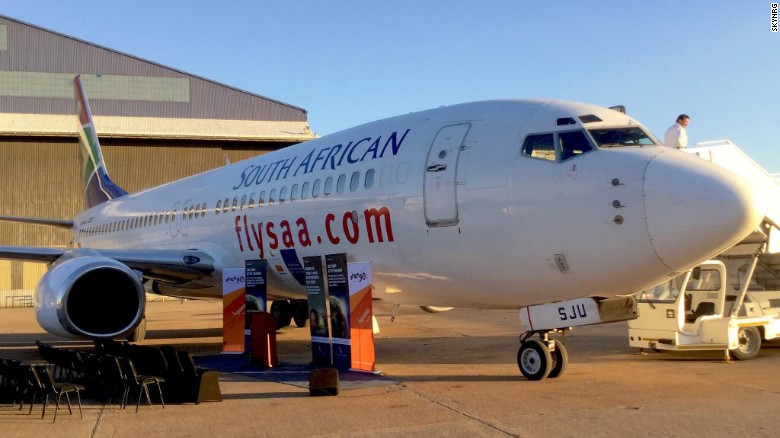
The first commercial planes in Africa to use biofuels carried 300 passengers between Johannesburg and Cape Town on July 15.
The Boeing jets, operated by South African Airways (SAA), were partly powered by nicotine-free, high-energy "Solaris" tobacco plants cultivated by farmers in Limpopo Province.
The flights represent a major step forward for "Project Solaris," a partnership between biochemists Sunchem SA, fuel specialists SkyNRG, SAA, and Boeing, which launched in 2014 with the aim of delivering "local, sustainable jet fuel production" at large scale.
"This is very significant as it proves we can use this biofuel," says Ian Cruickshank, SAA Group Environmental Affairs Specialist. "It shows the industry is really changing. Four or five years ago biofuel was seen as futuristic, and today it's here."
Cruikshank says the flights will build confidence among investors, including the South African government, which will allow the scheme to scale up. He believes that producing fuels locally will offer major benefits and savings to the wider economy.
"We won't need to buy dollars or oil, so we will not be hostage to oil price variations," he says, adding that scaled up production of the Solaris plants would also create thousands of jobs
SAA is aiming to have 50% of its fleet using the biofuel by 2023, which could reach 500 million liters per year. SkyNRG chief technology officer Maarten van Dijk projects the crop will be offsetting 267 kilotons of CO2 emissions a year by 2020.
Solaris fuel could also be versatile enough to go beyond aviation.
"We can also deliver biodiesel for cars and bioplastics," says Sunchem CEO Hayo de Feijter. "Fossils fuels can make pretty much anything, and this is the same."
De Feijter adds that the Solaris crop offers new opportunities to farmers that have suffered with the falling demand for tobacco as smoking prevalence decreases in South Africa.
"Every hectare we plant creates a full-time job," he says. Project Solaris aims to plant 250,000 hectares by 2025.
Solaris plants also have the advantage of being certified by the Roundtable on Sustainable Biomaterials (RSB), a global body that issues standards for sustainability practice.
"Solaris has very strong potential compared to other biofuel feedstocks," says RSB Executive Director Rolf Hogan. "It produces several harvests per year and a large amount of oil per hectare compared to other crops."
Biofuels projects in African countries have been heavily criticized by humanitarian groups for using land needed for food crops and worsening poverty. But Hogan believes that the Solaris supply chain is ethical and clear of involvement in deforestation, child labor, or risks to food security.
"This is a viable feedstock and supply chain that can now be developed in South Africa and neighboring countries," he says. "It also helps to demonstrate that the aviation sector can develop viable alternatives to fossil fuels that support local development and the environment."
The Solaris Project aims to expand into neighboring Malawi, Mozambique, and Zimbabwe in the near future.
No comments:
Post a Comment